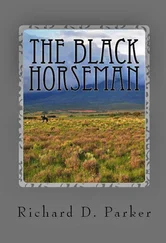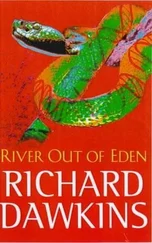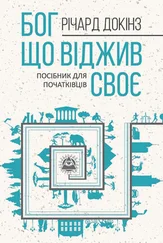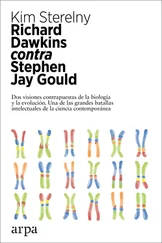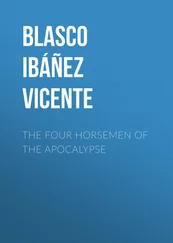Richard Dawkins - The Four Horsemen, episode 1
Здесь есть возможность читать онлайн «Richard Dawkins - The Four Horsemen, episode 1» весь текст электронной книги совершенно бесплатно (целиком полную версию без сокращений). В некоторых случаях можно слушать аудио, скачать через торрент в формате fb2 и присутствует краткое содержание. Жанр: Фантастика и фэнтези, на английском языке. Описание произведения, (предисловие) а так же отзывы посетителей доступны на портале библиотеки ЛибКат.
- Название:The Four Horsemen, episode 1
- Автор:
- Жанр:
- Год:неизвестен
- ISBN:нет данных
- Рейтинг книги:3 / 5. Голосов: 1
-
Избранное:Добавить в избранное
- Отзывы:
-
Ваша оценка:
- 60
- 1
- 2
- 3
- 4
- 5
The Four Horsemen, episode 1: краткое содержание, описание и аннотация
Предлагаем к чтению аннотацию, описание, краткое содержание или предисловие (зависит от того, что написал сам автор книги «The Four Horsemen, episode 1»). Если вы не нашли необходимую информацию о книге — напишите в комментариях, мы постараемся отыскать её.
The Four Horsemen, episode 1 — читать онлайн бесплатно полную книгу (весь текст) целиком
Ниже представлен текст книги, разбитый по страницам. Система сохранения места последней прочитанной страницы, позволяет с удобством читать онлайн бесплатно книгу «The Four Horsemen, episode 1», без необходимости каждый раз заново искать на чём Вы остановились. Поставьте закладку, и сможете в любой момент перейти на страницу, на которой закончили чтение.
Интервал:
Закладка:
[CH] Including denying them tax exemption.
[DD] Yeah.
[RD] Yes.
[CH] Or in the English case, state subsidy.
[RD] I'm curious how religion acquired this charm status that it has, compared to any of these other things. And somehow we've all bought into it whether we're religious or not. Some historical process has lead to this immunisation of religion against, well, this hyper-offense taking that religion is allowed to take.
[DD] And what's particular amusing to me finally - at first it infuriated me, but now I'm amused - is they've managed to enlist legions of non-religious people who take offense on their behalf.
[RD] And how!
[DD] In fact, the most vicious reviews of my book have been by people who are not themselves religious, but they're terribly afraid of hurting the feelings of the people that are religious. And they chastise me worse than anybody who is deeply religious.
[RD] Exactly my experience. Exactly my experience.
[SH] So one of you pointed out how condescending that view is. It's like the idea of penitentiaries I mean, other people need them, you know, that we must keep these people safely in their myths.
[RD] Yes.
[SH] Well. I think there's one answer to that question which may illuminate a difference, or at least the difference that I have, I think, maybe with all three of you. There's something about … I mean, I still use words like "spiritual" and "mystical" without furrowing my brow too much and, I admit, to the consternation of many atheists. I think there is a range of experience that is rare, and that is only talked about without obvious qualms in religious discourse. And because it's only talked about in religious discourse, it is just riddled with superstition. And it's used to cash out various metaphysical schemes which it can't reasonably do. But clearly people have extraordinary experiences. Whether they have them on LSD, or they have them because they were alone in a cave for a year, or they have them because just happen to have the neurology that is particularly labile that allows for it, but people have self-transcending experiences. And people have the best day of their life where everything seemed , you know, they seemed at one with nature. And for that, because religion seems to be the only game in town in talking about those experiences and dignifying them, that's one reason why I think it seems to be taboo to criticise it, because you are talking about the most important moments in people's lives and trashing them, at least from their view.
[RD] Well, I don't have to agree with you, Sam, in order to say that it's a very good thing you're saying that sort of thing, because it shows that, as you say, religion is not the only game in town when it comes to being spiritual. It's like it's a good idea to have somebody from the political right who is an atheist, because otherwise there's a confusion of values which doesn't help us. And it's much better to have this diversity in other areas. But I think I sort of do agree with you. But even if I didn't, I think it was valuable to have that.
[SH] Right.
[CH] If one could make one change, and only one, nine would be to distinguish the numinous from the supernatural.
[RD] Yes.
[SH] Right.
[CH] You had a marvelous quotation from Francis Collins, the genome pioneer, who said, while mountaineering one day, he was so overcome by the landscape, and then went down on his knees and accepted Jesus Christ. A complete non sequitur.
(general agreement)
[CH] It's never even been suggested that Jesus Christ created that landscape
[SH] Right. A frozen waterfall in three …
[RD] Three parts …
[SH] parts which would remind of the Trinity.
[CH] Well, absolutely. We're all triune in one way or another, We're programmed for that. That's very clear. There wouldn't ever have been a four-headed God.
[SH] Right (laughs)
[CH] You know that from experience. But that would be an enormous distinction to make. And I think it would clear up a lot of people's confusion that what we have in our emotions are the surplus value of our personalities, the bits that aren't particularly useful for our evolution, well, that we can't prove are, but that do belong to us all the same - don't belong to the supernatural and are not to be conscripted or annexed by any priesthood.
[DD] Yes, it's a sad fact that people, in a sense, won't trust their own valuing of their numinous experiences. They think it isn't really as good as it seems, unless it's from God, and some kind of a proof of religion. No, it's just as wonderful as it seems. It's just as important. It is the best moment in your life. And it's the moment when you forget yourself and become better than you ever thought you could be in some way. And see, in all humbleness, the wonderfulness of nature. That's it! And that's wonderful. But, it doesn't add anything to say, golly, that has to have been given to me by somebody even more wonderful.
[RD] It's been hijacked, hasn't it, by the …?
[CH] But it's also, I'm afraid, I think it's a deformity or a shortcoming in the human personality, frankly, because religion keeps stressing how humble it is, and how meek it is, and how accepting, almost to the point of self-abnegationist. But actually it makes extraordinarily arrogant claims for these moments, it says that I suddenly realise that the universe is all about me.
[SH] Yeah, yeah.
[RD] Yes.
[CH] And I felt terrifically humble about it. Come on! You know, we can laugh people out of that, I believe.
[SH] Right.
[RD] Yeah.
[DD] Also, and I think we should, and indeed must …
[DD] I am so tired of the "if only Professor Dennett had the humility to blah, blah, blah"
[RD] Yes.
[DD] And humility, humility … and this from people of breathtaking arrogance. And I think …
[CH] We shove one aside, saying … just don't mind me, I'm on an errand for God!
[DD] Yeah, right.
(laughter)
[CH] How modest is that?
[SH] This is the point I think we should return to, this notion of the arrogance of science. Because there is no discourse which enforces humility more rigorously. Scientists, in my experience, are the first people to say they don't know. I mean if you get a scientist to start talking off his area of specialisation, he immediately starts - he or she - hedging his bet, saying, you know, I'm not sure but I'm sure there's someone in the room who knows more about this than me … and, of course, so, you know, all the data's not in. This is the mode of discourse in which we are most candid about the scope of our ignorance.
[CH] Well actually a lot of academics come up with that kind of false modesty, but I do know what you mean.
[SH] Well, yeah, yes it is.
[CH] Many's the historian who says, "no, I yield …" (inaudible)
[RD] No, but any academic should do that, any …
[CH] Yes, they should.
[RD] The thing about religious people is that they recite the Nicene Creed every week, which says precisely what they believe. There are three gods, not one. The virgin Mary, Jesus died … went to the … what was it? … down for three days, and then came up again?
[CH] Yes.
[RD] In precise detail, and yet, they have the gall to accuse us of being overconfident and of not knowing what it is to doubt.
[DD] And I don't think many of them ever let themselves contemplate the question, which I think scientists ask themselves all the time: "what if I'm wrong?". "What if I'm wrong?" I mean, it's just not part of their repertoire.
[CH] Actually, would you mind if I disagree with you about that?
[DD] No.
[CH] A lot of talk that makes religious people hard to … not hard to beat, but hard to argue with, is precisely that they'll say that they're in a permanent crisis of faith. There is indeed a prayer, "Lord I believe, help thou my unbelief." Graham Greene says the great thing about being a Catholic was that it was a challenge to his unbelief. A lot of people live by keeping two sets of books. In fact, it's my impression that a majority of the people I know who call themselves believers, or people of faith, do that all the time. I wouldn't say it was schizophrenia, that would be rude. But they're quite aware of the implausibility of what they say. They don't act on it when they go to the doctor, or when they travel, or anything of this kind. But in some sense they couldn't be without it. But they're quite respectful of the idea of doubt. In fact they try and build it in when they can.
Читать дальшеИнтервал:
Закладка:
Похожие книги на «The Four Horsemen, episode 1»
Представляем Вашему вниманию похожие книги на «The Four Horsemen, episode 1» списком для выбора. Мы отобрали схожую по названию и смыслу литературу в надежде предоставить читателям больше вариантов отыскать новые, интересные, ещё непрочитанные произведения.
Обсуждение, отзывы о книге «The Four Horsemen, episode 1» и просто собственные мнения читателей. Оставьте ваши комментарии, напишите, что Вы думаете о произведении, его смысле или главных героях. Укажите что конкретно понравилось, а что нет, и почему Вы так считаете.



